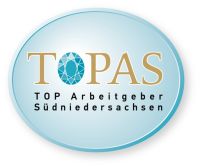
Copernicus is one of the very first to make use of ORCID

The Open Researcher and Contributor ID – ORCID – was just launched. As the first conference organizer and one of the very first publishers, Copernicus is offering its authors the connection to ORCID and is actively using this unique identifier to solve the problems of name ambiguity.
ORCID is an open, non-profit, community-based effort to provide a registry of unique researcher identifiers and a transparent method of linking research activities and outputs to these identifiers. ORCID is unique in its ability to reach across disciplines, research sectors, and national boundaries and in its cooperation with other identifier systems.
Scientists who submit papers to journals published by Copernicus Publications or contribute to conferences organized by Copernicus Meetings can from now on connect their Copernicus Office user ID to their ORCID account. By doing so, Copernicus can then provide all future metadata including the individual ORCIDs. This will uniquely identify these authors, e.g. when submitting the bibliographic metadata of their article to Thomson Reuters’ Web of Science, to Scopus, or other similar services.
“With ORCID we see a great chance that we as a service provider can help our scientists to receive all the assistance they deserve for their excellent research output. So far, we have struggled too much with ambiguity and various user records in different administration systems” – Martin Rasmussen, managing director of Copernicus.
Authors will be able to create their research output record in ORCID including publications and contributions from various publishers and other initiatives. For the very first time, this will allow the re-use of this inter-publisher information. Readers can then see not only articles published with the respective publisher, but also papers published in any other publishing house related to ORCID. This will provide data long before the resulting citations will allow the same connection through citation services.
ORCID can also help institutions and funders to make much better use of research output data simply because the underlying scientists can be uniquely identified.
More information on ORCID.
Download this press release.
Contact Media and Communications.



